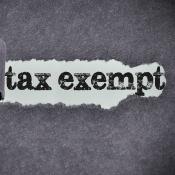Channels
Resources
Events Venues

Brazil is highly attractive to foreign investors. However, the Brazilian taxation system is very complex. Foreigners want to come, so how would non-residents pay their taxes in Brazil?

Disabled people represent almost 25% of the entire Brazilian population. In this article we will learn how the measures taken by the government try to promote their accessibility.

Brazil is known for having a high tax burden on its citizens and companies. We will provide an overview of the most common taxes in Brazil, dividing them into Federal, State and Municipal.
STAY CONNECT WITH US
TOP ARTICLES

ICMS is one of the most common taxes in Brazil and applies to the commercialisation of goods and services. In this particular article, we will give a detailed approach to this tax, focusing on what it applies to.

Brazil has a specific tax charged on properties located in rural areas of Brazil, which is known by the acronym ITR. In this article we will learn more about this tax what the rates and cases of exemption for this tax are.

Recibo and Nota Fiscal or Cupom Fiscal are terms commonly used to describe documents issued for transactions involving sales or services in Brazil. This article will give a short outline about the difference between these documents and the validity of these papers.

Costs to buy Real Estate are not restricted to the price of the property itself. Taxes in Brazil can make an initially good deal pricey, especially in São Paulo. Find out in this article what you will also pay for when acquiring property in the biggest Brazilian city.

Tax and bureaucracy are a huge burden for any Brazilian company, but it impacts small sized businesses even more. To address this issue the Brazilian government created Simples Nacional, a taxation regime designed to simplify the collection of taxes for companies categorized as micro or small size.

The Sports Incentive Law, also known as Lei de Incentivo aos Esportes was created in Brazil in order to promote social projects related to sports. In this article, we will look in more detail about this law and how companies and individuals can benefit from it.

Recap, short for special regime for the purchase of capital goods for exporters, is a customs regime that grants tax benefits to exporting companies. We will learn in this article what Recap is and who can apply for it.